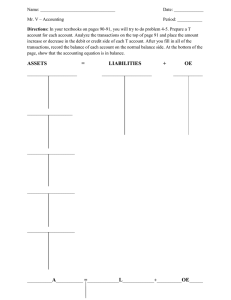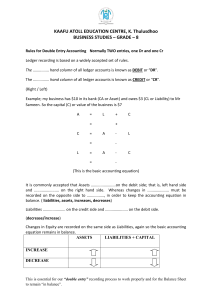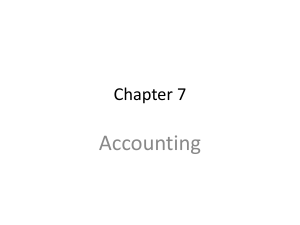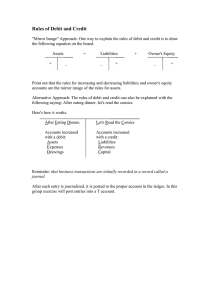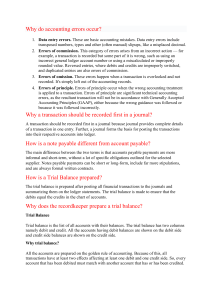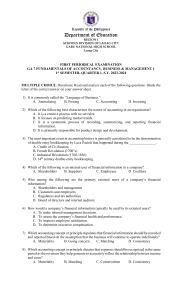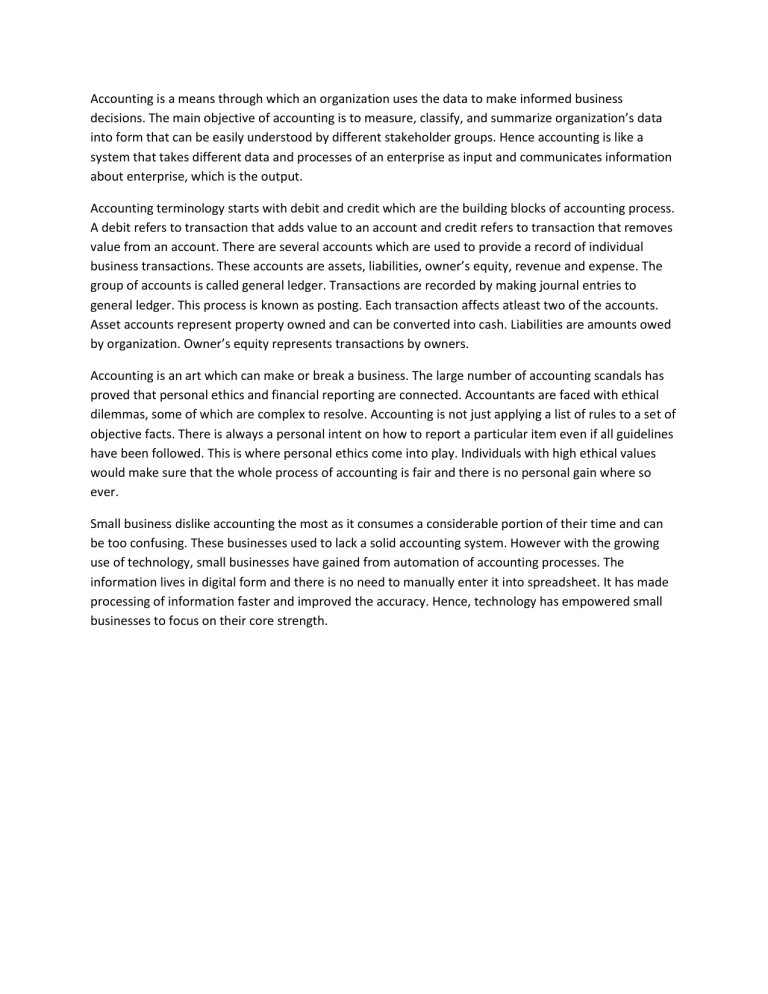
Accounting is a means through which an organization uses the data to make informed business decisions. The main objective of accounting is to measure, classify, and summarize organization’s data into form that can be easily understood by different stakeholder groups. Hence accounting is like a system that takes different data and processes of an enterprise as input and communicates information about enterprise, which is the output. Accounting terminology starts with debit and credit which are the building blocks of accounting process. A debit refers to transaction that adds value to an account and credit refers to transaction that removes value from an account. There are several accounts which are used to provide a record of individual business transactions. These accounts are assets, liabilities, owner’s equity, revenue and expense. The group of accounts is called general ledger. Transactions are recorded by making journal entries to general ledger. This process is known as posting. Each transaction affects atleast two of the accounts. Asset accounts represent property owned and can be converted into cash. Liabilities are amounts owed by organization. Owner’s equity represents transactions by owners. Accounting is an art which can make or break a business. The large number of accounting scandals has proved that personal ethics and financial reporting are connected. Accountants are faced with ethical dilemmas, some of which are complex to resolve. Accounting is not just applying a list of rules to a set of objective facts. There is always a personal intent on how to report a particular item even if all guidelines have been followed. This is where personal ethics come into play. Individuals with high ethical values would make sure that the whole process of accounting is fair and there is no personal gain where so ever. Small business dislike accounting the most as it consumes a considerable portion of their time and can be too confusing. These businesses used to lack a solid accounting system. However with the growing use of technology, small businesses have gained from automation of accounting processes. The information lives in digital form and there is no need to manually enter it into spreadsheet. It has made processing of information faster and improved the accuracy. Hence, technology has empowered small businesses to focus on their core strength.

